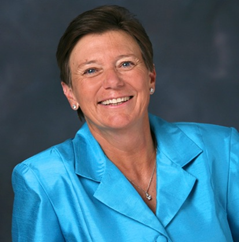AARP Hearing Center

Blog by Jane Barton
Greetings one and all...
Welcome back to The Caregiver’s Cairn - a sustaining and empowering guide for caregivers and care receivers. I hope you and yours have enjoyed a lovely month since my last posting. I invite you to pour a cup of coffee or hot tea, curl up in a cozy chair, and take a deep breath. If you are feeling a wee bit stressed or overwhelmed, you’ve come to the right place. Today, it’s time to remember that even during the toughest times, ya gotta laugh. No joke! Humor is no laughing matter. It has been scientifically proven that humor is an effective method of coping. So, humor me. Let’s chat about the benefits of a good belly laugh from time to time.
I am certainly not the first person to recognize the beneficial aspects of humor. In Proverbs 17:22, we are advised that “a merry heart doeth good like a medicine.” A contemporary testament to the healing aspects of humor is Norman Cousins’ account of his experience with intense, chronic pain— Anatomy of an Illness (1979). In his classic book, Cousins recounts how all medical interventions failed to mitigate his pain. Out of sheer desperation, he attempted to divert his attention with funny movies, television shows, and books. In so doing, he discovered that ten minutes of intense laughter provided hours of pain relief! Who knew? Consequently, Cousin’s enthusiastically prescribed laughter for painful situations.
Laughter not only relieves physical pain, it also relieves emotional stress—something quite familiar to most caregivers. So, it’s important to understand how laughter helps to alleviate our stress. Quite simply, laughter works very much like a pressure cooker. If you aren’t from the south, this analogy may not work for you. So, let me explain. A pressure cooker has a relief valve that allows steam to escape when the contents of the pot reach a rolling boil. Laughter serves the same purpose. When we get stressed to the max and need to blow off some steam, laughter provides the desired relief.
Twenty years ago, my brother and I experienced the benefits of laughter during a very trying time. Our father was terminally ill, and we were sharing the long-distance caregiving responsibilities. Needless to say, we were both juggling a lot of balls! Our father had not made final arrangements, so we opted to address those concerns prior to his death. We cleared our calendars and scheduled a meeting with the local funeral home. We knew our father’s preferences and intended to honor his wishes.
At the funeral home, we met a very somber funeral director. He explained the various options. Posed questions. Provided a tour of the grounds. Offered suggestions. And ultimately served us in a competent manner. However, we needed more than competence that particular day. We needed and wanted compassion. Consequently, the pressure increased with every question, comment, and sigh!
We were invited to wait in one of the selection rooms while the final contract was drafted. Although I had never talked to my brother about my final wishes, it seemed like the perfect opportunity to discuss the options. As we chatted, I strolled around the room checking out the prices of urns. Just as I was instructing my brother to save money and dispose of my ashes in a Folger’s coffee can, the very somber funeral director walked in the room. The look on his face was priceless—absolute horror and shock! Instead of apologizing or attempting to explain my seemingly offensive comment, I started laughing uncontrollably as did my brother. At that point, the funeral director did what any sane person would do—he fled! And we continued to laugh until bittersweet tears flowed down our cheeks. Exactly the relief we needed. It saddens me to think that the funeral director failed to realize in that moment he provided us the greatest service of all—laughter!
Please know I am not making light of any of the burdens associated with the journey of caregiving. Having served as a personal and professional caregiver, I know them all too well. But I also know that in order to care well, we must be well. And to be well, we gotta laugh along the way to relieve some of the pressure.
Thanks so much for stopping by today. I invite you to share your perspective on the caregiving journey. Make suggestions. Pose questions. Provide resources. Share your story. Coming together and sharing, we will improve the process for one and all. I look forward to continuing the conversation next month. Til then, blessings to you and yours...Jane W. Barton
Do you have a question for Jane? Please email us at coaarp@aarp.org and we will be in touch soon!
Jane W. Barton, MTS, MASM, CSA is a passionate speaker, writer, and listener. Jane is the founder of Cardinal, LLC, a consulting firm that provides educational programs to assist people in confronting the daunting challenges posed by aging, serious illness and disability. Jane is well-versed in the areas of grief and bereavement, caregiving, hospice and palliative care, change and transition, and spirituality and health. She presents innovative, transformational programs to community members, healthcare providers, pastoral caregivers, clergy, funeral service providers, and national audiences to improve the experience of people and families challenged by serious, advanced, or terminal illnesses. Previously, Jane served as Director of Education for a hospice and palliative care educational institution. She has also served as a hospice chaplain and bereavement facilitator in hospice and palliative care. Jane is a certified Spiritual Director as well as a Certified Senior Advisor. In a former life, she worked as a financial services representative and an exploration petroleum geologist and manager.































































